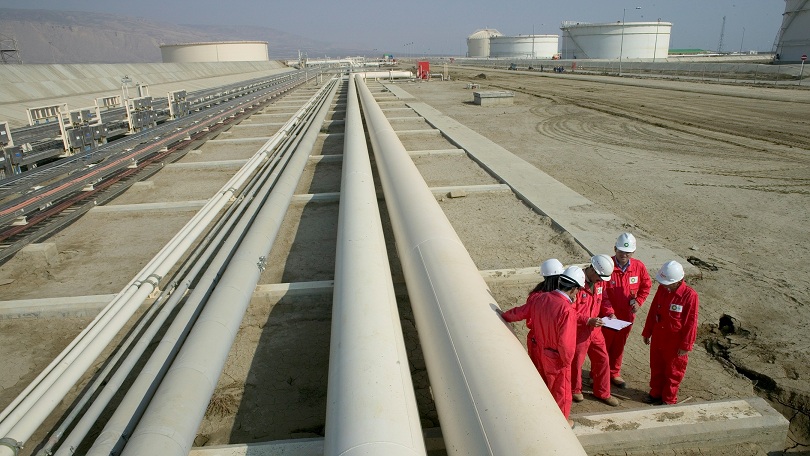As Europe looks to the Caspian region to supply new energy sources to meet its demands, Germany expressed its full support for the 3,500 km (2,175 mi) natural gas pipeline mega-project known as the Southern Gas Corridor, during the German-Azerbaijani Business Forum held in Baku on October 11.
“The Southern Gas Corridor is important not only for Germany, but for the entire European Union (EU),” Theresa Schoenfeld, Deputy Chief of Mission for the Germany Embassy in Baku, told Caspian News. Azerbaijan is the sixth largest energy exporter to Germany, Schoenfeld said during her remarks at the forum.
The German-Azerbaijani Business forum, organized by the German-Azerbaijani Chamber of Commerce, gathered over 250 government officials and business representatives from both countries to discuss current relations and seek opportunities for expanding them.
With Europe importing more than 50 percent of its energy demand from outside its borders, the topic was a focal point for discussions, especially considering the Southern Gas Corridor is set to go online by 2020.
Azerbaijan will pump natural gas from its offshore Shah Deniz II field beneath the Caspian Sea to the European marketplace through the overland and undersea mega-pipeline, which is made up of three segments that traverses six countries. Those three segments – the South Caucasus Pipeline, the Trans Anatolian Pipeline (TANAP), and the Trans Adriatic Pipeline (TAP) – will initially deliver 10 billion cubic meters (bcm) of gas from Caspian Sea to Europe via southern Italy. Another six bcm will be delivered to Turkey through the corridor, starting next year.
“Once the Southern Gas Corridor is functioning it will contribute to the energy security of Germany and the entire European Union,” Schoenfeld told Caspian News.
Located on the western edge of the Caspian Sea and bordered by Russia to north and Iran to south, Azerbaijan possesses 2.55 trillion cubic meters of proved gas reserves, while proved crude oil reserves are estimated at seven billion barrels, according to data compiled by the US government.
Azerbaijan absorbs 80 percent of Germany’s investments in the South Caucasus region, which includes also Armenia and Georgia, according to 2015 data published by the German government. The overall trade volume between Azerbaijan and Germany during the first eight months of 2017 exceeded $500 million. German foreign direct investment stands at $460 million between 1992 – the year Germany established diplomatic relations with Azerbaijan, which was created in December 1991 upon the dissolution of the USSR – and today. Azerbaijan has made $120 million in investments in the German economy over the same period.







 Armenian sappers commenced on Monday mine-clearance operations in the territories adjacent to the Saint Mary Church in village of Voskepar (Armenia...
Armenian sappers commenced on Monday mine-clearance operations in the territories adjacent to the Saint Mary Church in village of Voskepar (Armenia...
 Iran and Pakistan have signed eight cooperation documents in various fields, and agreed to strengthen ties to fight terrorism in the region.
Iran and Pakistan have signed eight cooperation documents in various fields, and agreed to strengthen ties to fight terrorism in the region.
 As the conflict between Ukraine and Russia escalates, the strategic importance of Kharkiv, Ukraine's second-largest city, has come sharply into focus.
As the conflict between Ukraine and Russia escalates, the strategic importance of Kharkiv, Ukraine's second-largest city, has come sharply into focus.



